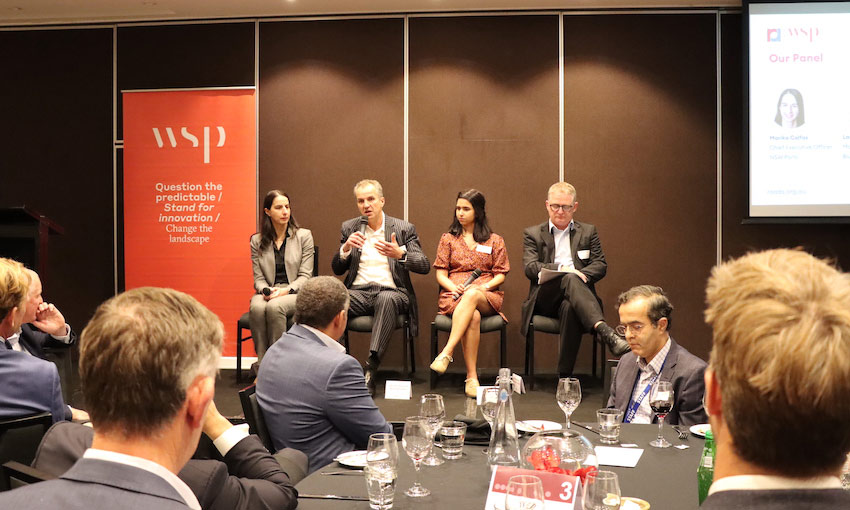FREIGHT and logistics came into focus at the Roads Australia industry lunch in Sydney on Tuesday this week.
Eighty-five representatives from a variety of organisations and agencies in the road transport sector met at Rydges World Square for lunch for networking opportunities and an insightful panel discussion among freight and logistics industry leaders.
The panel comprised Marika Calfas, NSW Ports CEO; Lachlan Benson, managing director of logistics consultant Blue Arcadia; Shifani Sood, senior consultant, ADV infrastructure investment decisions at engineering firm WSP; and Michael Stokoe, director urban freight at Transport for NSW.
Ms Calfas initiated the discussion with a presentation on how ports fit into the state’s logistics system, emphasising the need to secure and preserve industrial land for port use. She used the example of empty container parks.
She said the cost of transport has increased significantly because of decisions around city planning and land use which did not factor in the growing freight task.
The current challenge in the logistics sector is to ensure landside supply chains are designed in a way that support ports and, in turn, the broader economy.
Ms Sood spoke about how the state’s infrastructure was not built to handle the growth it is now experiencing, and how the increase of trucks on roads is causing congestion in cities and creating safety issues for pedestrians.
She explored the notion of micro-mobility and its economic and environmental advantages for transport in cities.
And Mr Stokoe shared an overview of Transport for NSW’s recently published Future Transport Strategy.
The strategy notes the volume of commodity freight in New South Wales is set to increase by 34% across the state by 2061, and more than double in Greater Sydney by that year.
The panellists left delegates with a reminder to “think about the complete freight story” and about how infrastructure can be designed to accommodate freight.
Roads Australia’s policy director Royce Christie, who facilitated the panel discussion, told DCN regular events for the logistics industry enable delegates to hear each other’s views and solve problems.
“There’s a key awareness and education process involved; we try to get speakers who challenge at least some of the thinking that’s in the system at the moment,” he said.
“But it’s also about the ability for people just to have those quiet chats on the sidelines – that networking opportunity is very important.”
Mr Christie highlighted the importance of bringing together representatives from the roads sector and the ports sector.
“We need to be efficient in our movement [of goods]; most of the products that come into Australia are going to end up in a household somewhere, so that entire chain that starts in the port and ends in the household needs to be considered.”

